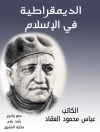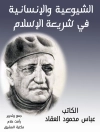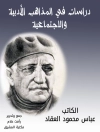Save for his raucous, rhapsodical autobiography, ‘Ecce Homo, ‘ ‘The Antichrist’ is the last thing that Nietzsche ever wrote, and so it may be accepted as a statement of some of his most salient ideas in their final form. Notes for it had been accumulating for years and it was to have constituted the first volume of his long-projected magnum opus, ‘The Will to Power.’ His full plan for this work, as originally drawn up, was as follows:
VOL. I: The Antichrist: an Attempt at a Criticism of Christianity
VOL. II: The Free Spirit: a Criticism of Philosophy as a Nihilistic Movement
VOL. III: The Immoralist: a Criticism of Morality, the Most Fatal Form of Ignorance
VOL. IV: Dionysus: the Philosophy of Eternal Recurrence
The first sketches for ‘The Will to Power’ were made in 1884, soon after the publication of the first three parts of ‘Thus Spake Zarathustra, ‘ and thereafter, for four years, Nietzsche piled up notes. They were written at all the places he visited on his endless travels in search of health—at Nice, at Venice, at Sils-Maria in the Engadine (for long his favourite resort), at Cannobio, at Zürich, at Genoa, at Chur, at Leipzig. Several times his work was interrupted by other books, first by ‘Beyond Good and Evil, ‘ then by ‘The Genealogy of Morals’ (written in twenty days), then by his Wagner pamphlets. Almost as often he changed his plan. Once he decided to expand ‘The Will to Power’ to ten volumes, with ‘An Attempt at a New Interpretation of the World’ as a general sub-title. Again he adopted the sub-title of ‘An Interpretation of All That Happens.’ Finally, he hit upon ‘An Attempt at a Transvaluation of All Values, ‘ and went back to four volumes, though with a number of changes in their arrangement. In September, 1888, he began actual work upon the first volume, and before the end of the month it was completed. The Summer had been one of almost hysterical creative activity. Since the middle of June he had written two other small books, ‘The Case of Wagner’ and ‘The Twilight of the Idols, ‘ and before the end of the year he was destined to write ‘Ecce Homo.’ Some time during December his health began to fail rapidly, and soon after the New Year he was helpless. Thereafter he wrote no more.
Mengenai Pengarang
Friedrich Wilhelm Nietzsche (1844 1900) was a German philosopher. He began his career as a classical philologist before turning to philosophy. He became the youngest person to hold the Chair of Classical Philology at the University of Basel in 1869 at the age of 24, but resigned in 1879 due to health problems that plagued him most of his life; he completed much of his core writing in the following decade. In 1889, at age 44, he suffered a collapse and afterward a complete loss of his mental faculties, with paralysis and probably vascular dementia. He lived his remaining years in the care of his mother until her death in 1897 and then with his sister Elisabeth Förster-Nietzsche. Nietzsche died in 1900, after experiencing pneumonia and multiple strokes.












